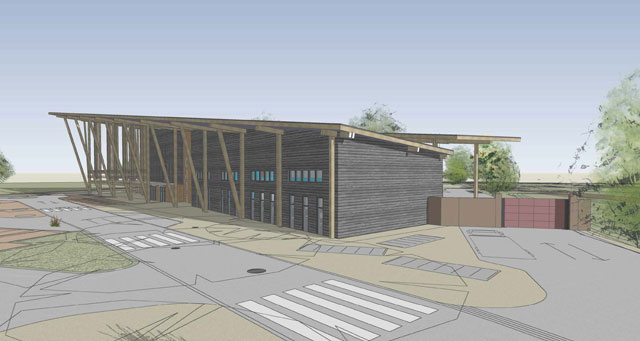by Professor Beverley Gibbs, chief academic officer of NMITE (New Model Institute for Technology and Engineering)

NMITE has been created first to respond to the recognised and predicted shortage of engineering graduates, and second to respond to industry feedback that graduates have become very discipline-focused but not work-ready enough to start adding value immediately. My role as chief academic officer focuses on making sure NMITE’s model of learning by doing is reflected in both our approach and our future learning spaces.

Traditionally, engineering education has relied heavily on lectures followed by examinations. This type of educational model has been regarded as fair and objective, and is certainly scaleable, but reports from employers consistently tell us that graduates lack work-ready skills. We are starting to see a few institutions around the world turning towards less conventional ways of doing things, for example in problem-based learning and “learning without lectures” approaches.
NMITE aims to build on these traditions. Our disruptive pedagogical design will support our future students in learning through hands-on work repeatedly in teams rather than through conventional lectures. We believe that this approach of learning by doing will equip our prospective learners with the skills employers are now demanding and contribute to a bright future for engineering on a global scale.
NMITE’s goal will be to develop graduates who are skilled in technical, verbal and written communication, instinctively collaborative and inherently trans-disciplinary in their approach to problems. To achieve this, we will be placing emphasis on the skills of collaboration, communication, creative problem solving, critical thinking, emotional intelligence, initiative, respect and resilience as crucial for both employers and individuals alike.
Personally, I see learners as individuals, and believe that higher education should offer each one a space to grow as a person, master a subject and begin to grapple with the lifelong challenge of how they will engage with the world. By imbuing a learner with an appreciation of both the context and implications of their work, and by engaging in their local and global communities they will gain an informed perspective on the challenges facing society.
As a passionate educator, I’ve spent 20 years working in industry, which is also particularly valuable for my role at NMITE, given our aim to bring in a new age of engineering education through challenging the conventional.
Across the board, we are already seeing a change in thinking about engineering education as a result of the COVID-19 pandemic. Recently, I co-edited a report by the Engineering Professors’ Council, Emerging Stronger: Lasting Impact from Crisis Innovation, with Dr Gary Wood from the University of Sheffield. The report brought together over 250 educators and practitioners to assess how the COVID-19 pandemic had accelerated the transformation of engineering education – removing barriers to innovation as well as introducing new challenges. The report includes examples of emerging good practice in case studies from across the sector and students’ perspectives on the changes to their learning experience.
By learning through experiencing many real-world challenges with employers and partner companies during their time with us, our students will be equipped with all the tools, skills and approaches that employers are looking for. NMITE students will have built up a portfolio of work, and mastered the confidence to share achievements, passions and strengths during their studies which means they will be ready to work, knowing what to expect and in a good position to take the opportunities presented to them on graduation.
For more information on NMITE, please visit: www.nmite.ac.uk.
NMITE was inaugurated on 19 October 2018 and in August 2020 was listed in the register of English higher education providers by the Office for Students (OfS). In order to recruit our first future learners we need to receive validation from a degree-awarding body. We will then recruit a pioneer cohort and hope to be educating more than 5,000 engineering students by 2032.

